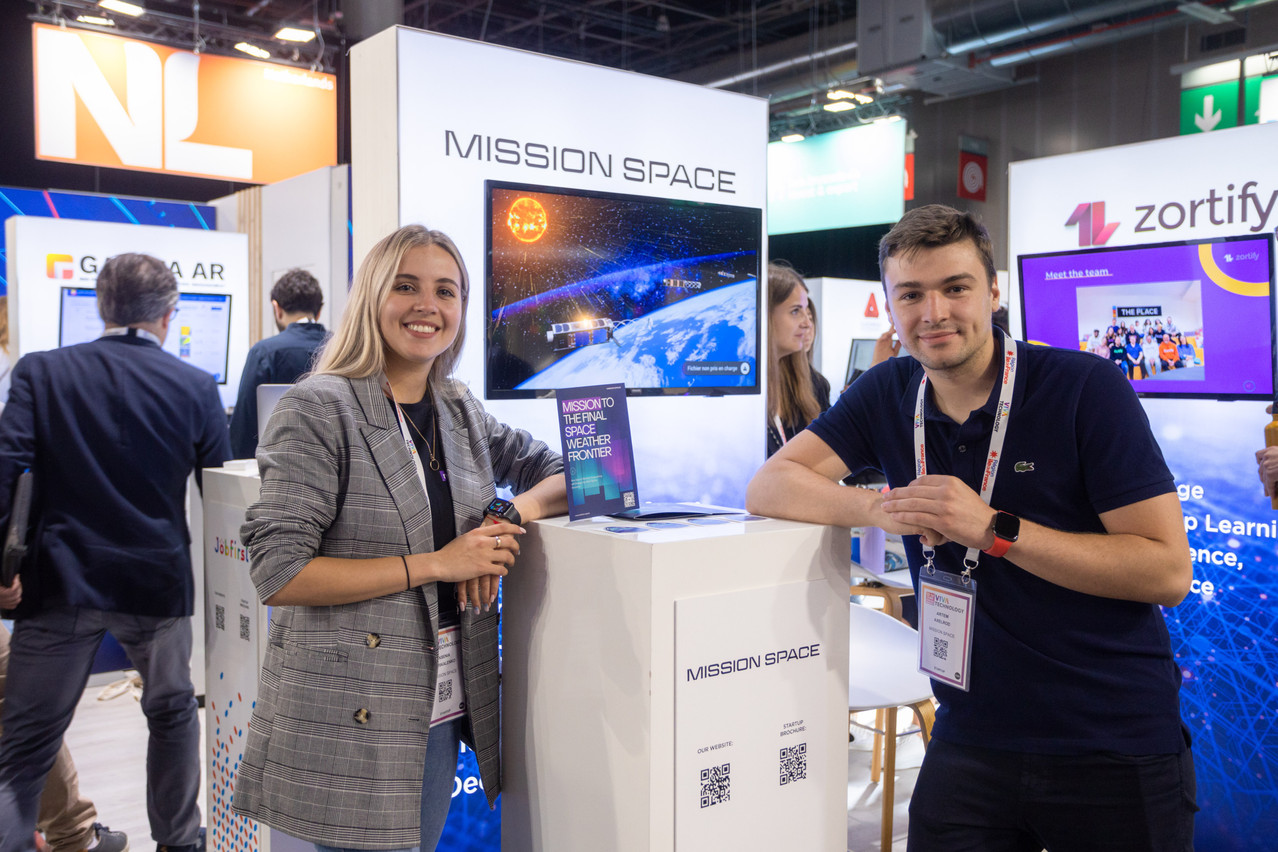Lydia Linna: Mission Space has developed a space weather intelligence system with many applications, from satellite operations to high-speed financial trading. Can you tell us more about what Mission Space does?
Ksenia Moskalenko: We are building the world’s first commercial satellite-based system to monitor, detect, and warn about space weather.
What exactly is space weather?
Everyone knows about the weather on Earth, like the wind and the rain. Space weather consists of solar storms--everything that the sun is emitting, like geomagnetic storms, cosmic rays, coronal mass ejections. Basically, when we talk about space weather, we’re talking about sun activity.
But the weather in space is actually super harmful, not only for assets in space, but also for infrastructure on the ground.
How does Space Mission address this issue?
Our satellite intelligence system consists of two things. Number one, we have our own hardware, our own detectors, on the payloads that we launch. And we put those onto other people’s satellites and send them to low Earth orbit. This network of detectors gives us good data as to what’s happening in the near-Earth radiation environment.
The second thing is the intelligence system itself. It’s a software as a service tool that has analytics inside some models and a lot of cool APIs [application programming interface]. These allow people to see what’s happening with the radiation in space and how that may affect their assets. They can then make informed decisions to mitigate the risks of those storms.
The chance to get out of the usual community, meet new people, and extend our network beyond space is super interesting.
Web Summit is a major technology conference. More than 70,000 people from a variety of sectors attend. Why are you participating in Web Summit and what do you hope to get out of it?
When it comes to space conferences, you see the same people over and over again because it’s such a close community. Conferences are great when it comes to knowledge sharing, but we’re seeing more and more how space tech is becoming diversified and is attracting more interest from other industries.
Web Summit is super startup friendly and is a good opportunity for us to get in front of investors from the US and Canada. The chance to get out of the usual community, meet new people, and extend our network beyond space is super interesting.
Fit 4 Start is the most rigorous programme that exists out there, but it was the most helpful programme as well--you come out of it prepared for the outside world.
We were also selected to participate in the pitch competition, which is the biggest in Europe. And we advanced to the semifinals of the competition! This is huge news because only eight out of the 105 startups who pitched made it to the semifinal. It will take place on the Web Summit’s main stage in front of 20,000 people.
I’ll also be participating in a woman-founded startup mentoring session. We have a very young business team and the chance to get knowledge or experience from people is incredible for us.
What does Luxembourg bring to the table for your company?
We started as a Latvian startup in 2020, and it was super, super challenging, because in Latvia, there isn’t a lot of space tech going on. We needed more access and connections, and after a year of trying, we found out about Fit 4 Start [Luxembourg’s startup accelerator programme].
We applied, and ! Fit 4 Start is the most rigorous programme that exists out there, but it was extremely helpful as you come out of it prepared for the outside world.
Although the operational facility and tech team are in Riga for now, we opened our headquarters in Luxembourg. Currently, only our chief commercial officer is in Luxembourg, but my co-founder and I will be moving permanently next month, and we’re trying to move all of the core team here as well.
We’re super excited to get [our technology] out there and show that this is a really cool thing that we’re doing.
Luxembourg is like a small community--everyone is an extension of each other. The country has a lot of resources for supporting space startups and the support we’ve been getting so far is amazing.
Who are the potential clients that might use the Mission Space system?
Our clients can be from the government, as they use this data for national security purposes or for infrastructure resilience. Agencies like the Luxembourg Space Agency, for example, may use this data for their space safety programme. Or, they can also be private companies like SES, also in Luxembourg, rocket launchers, or even energy companies or the aviation industry.
Besides relocating to Luxembourg, what does the future hold for Mission Space?
We’ve been working on the hardware--our actual hardware is going to fly in May 2023, which is going to be our in-orbit demo mission. And we’re looking for other partners who can launch us and be interested in buying our hardware. People are not used to using software to predict the arrival of geomagnetic storms. We have to show that what we do is valuable.
Read also
Also key is for us to announce our seed round closure, and we hope to be able to squeeze in more launches of our payloads next year. We spent a lot of time developing the actual product, and our first beta platform will be available, I hope, by the beginning of next year. We’ll be able to give people a feel of what it’s like to use the software.
We’ve spent a year and a half developing this technology, and next year, we will finally be ready to launch it. We’re super excited to get it out there and show that this is a really cool thing that we’re doing.



